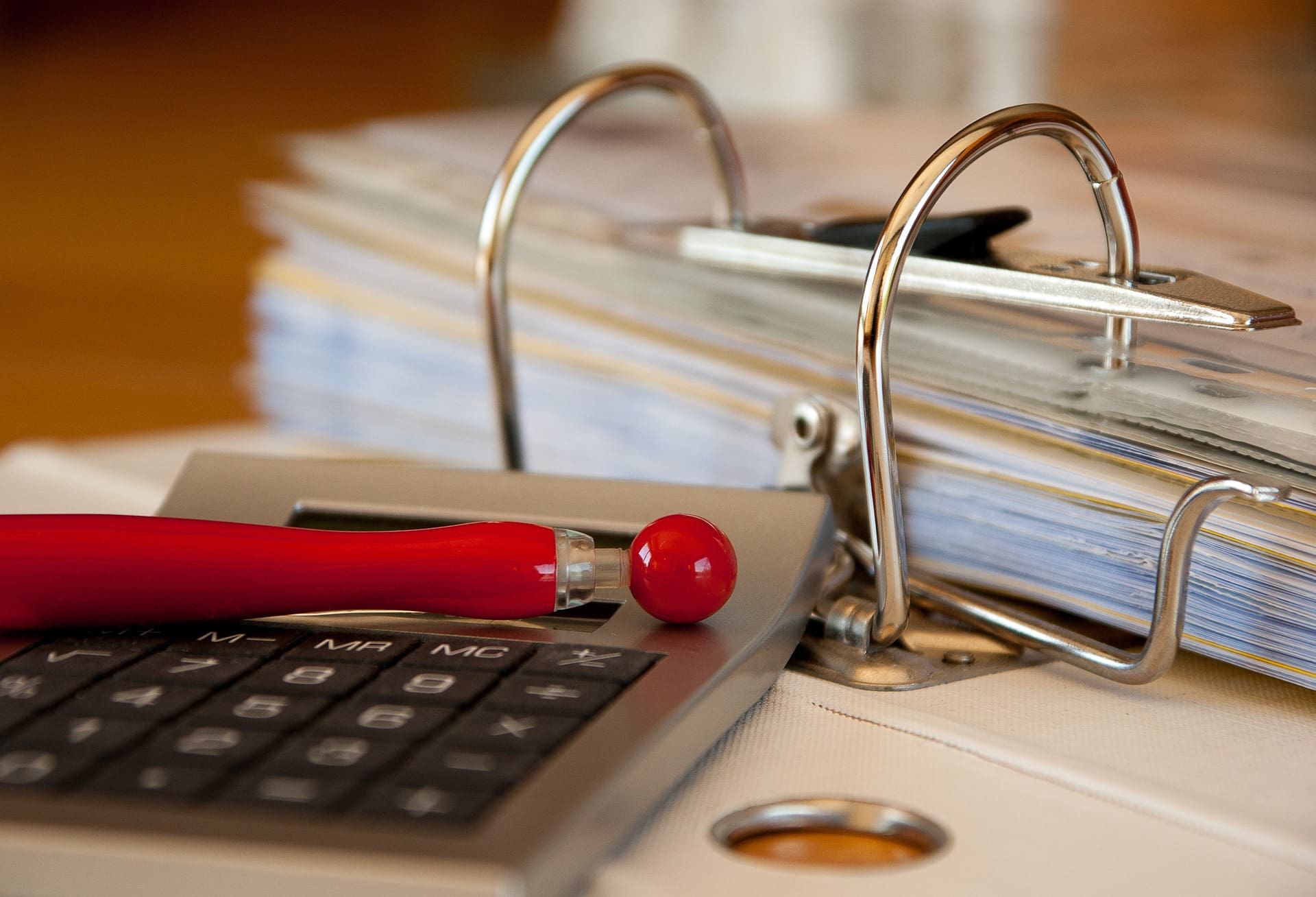
Estate Planning for UK Expats: How to Prepare an ‘In Case of Death’ Folder
In Case of Death Folder
Whether you’ve recently become an expat, are planning to leave the UK, or have lived abroad for years and are now preparing to return home, expat estate planning is essential. In case of death, would your spouse or family know where to find your key financial documents? Do you have a well-organised “in case of death” folder to ensure they can easily access your UK and overseas pensions, investments, and bank accounts?
TL;DR
An ‘In Case of Death’ folder is a practical estate planning tool that ensures your family can easily access key documents — passports, wills, pensions, bank accounts, insurance, digital accounts, and contact details — if something happens to you. For British expats, cross-border assets and legal differences make this especially important. Creating and regularly updating this folder reduces stress, avoids delays, and helps your loved ones manage your affairs smoothly.
Without proper planning, managing an estate can be costly and stressful.
This guide will show you how to create an ‘In Case of Death’ folder – an essential resource specifically designed for British expats.
A well-organised folder can save your loved ones months (or even years) of legal battles, stress, and unnecessary costs.
Let’s walk through what to include and why it’s so important.
Why You Need an ‘In Case of Death’ Folder
An estimated 5.5 million British expats live overseas, with large populations in Spain, France, Australia, and Canada.
While moving abroad can offer financial opportunities and a better lifestyle, it also introduces estate planning challenges.
Over 60% of British expats die without a legally valid will, leaving their families to navigate complex legal and financial issues.
Without a proper plan:
- Your assets could be frozen.
- Your beneficiaries may face unnecessary taxes.
- Probate could take years if foreign assets are involved.
A well-organised ‘In Case of Death’ folder ensures your loved ones have everything they need when they need it most.
What Should Be in Your ‘In Case of Death’ Folder?
1. Essential Personal Documents
- Passport copies (yours and your spouse’s)
- Birth and marriage certificates
- National Insurance number
- Residency permits or visas (if living abroad)
💡 Practical Tip: Add a ‘Quick-Start’ guide at the front of your folder with key contacts and the first steps your family should take.
2. Pensions & Investments
- UK pension details (SIPP, final salary pensions, state pension forecast)
- Overseas pensions (QROPS, QNUPS, or workplace pensions abroad)
- Investment portfolios (ISAs, offshore bonds, general investment accounts)
- Buy-to-let property details (including mortgages and rental agreements)
💡 Practical Tip: £27 billion in UK pensions remain unclaimed. Ensure your pension providers have your up-to-date contact details.
3. Bank & Financial Accounts
- List of all UK and overseas bank accounts
- Credit card details and outstanding balances
- Safe deposit box details (if applicable)
💡 Practical Tip: If you haven’t already, set up a joint bank account with your spouse to allow uninterrupted access to funds.
4. Wills & Estate Planning Documents
- UK and overseas wills (if applicable)
- Trust documents (for tax efficiency)
- Power of Attorney (to handle financial matters if incapacitated)
💡 Practical Tip: Probate for UK estates can take 9-12 months, but for expats with foreign assets, it can stretch to 2-3 years. Proper planning minimises delays.
🔗 Expat Finance 101: 10 Reasons You Should Have a Will
5. Life Insurance & Death-in-Service Benefits
- Life insurance policies (UK and overseas)
- Employer benefits (death-in-service payouts)
- Contact details of financial advisers or brokers
💡 Practical Tip: Over £2 billion in UK life insurance payouts remain unclaimed due to missing beneficiaries or outdated policy information. Keep your details up to date.
6. Property & Other Assets
- UK and overseas property ownership documents
- Mortgage details
- Car ownership documents and insurance policies
- Valuable collections, art, or antiques (with valuations, if available)
💡 Practical Tip: Provide instructions for managing overseas properties, including mortgage payments and rental agreements.
7. Debts & Liabilities
- Mortgage or loan agreements
- Credit card debts
- Any business-related liabilities
💡 Practical Tip: Some countries, like France and Spain, allow heirs to inherit debts unless they formally reject the inheritance. Keep a clear record of liabilities.
8. Monthly Expenses & Subscriptions
- Utility bills (especially if auto-paid)
- Insurance policies (home, car, health)
- Regular subscriptions (streaming services, memberships, professional associations)
💡 Practical Tip: Leave a simple ‘bill cancellation checklist’ to help your family manage expenses efficiently.
9. Digital Assets & Online Accounts
- Passwords for banking, investments, and pensions
- Social media and email accounts (with instructions on handling them)
- Cryptocurrency wallet details (if applicable)
💡 Practical Tip: Here is a handy resounrce that explains how to pass on your digital accounts upon death. Or not. Deletion is also an option.
10. Key Contacts
- Solicitor
- Financial adviser
- Accountant/tax adviser
- CEO/Company secretary of any unlisted investments
- Executor of your will
- Close family members who need to be informed
💡 Practical Tip: Draft a group email with pre-written instructions and key contacts, ready to be sent by your executor.
🔗 How Brexit Changed Financial Advice for UK Expats in the EU
11. Record Your Final Wishes & Funeral Preferences
- Specify where you want to be buried or cremated (and in which country).
- Detail any prepaid funeral plans or life insurance policies that will cover the costs.
- If you have a particular charity or cause you’d like donations to go to instead of flowers, include it here.
💡 Practical Tip: Funeral arrangements can be delayed due to legal and administrative formalities, especially in a foreign country. Ensure that your family has immediate access to key documents and that your wishes are clearly stated in writing to avoid additional stress during an already difficult time.

In case of death folder checklist
Download this free checklist to ensure your family has everything they need in case of an emergency
Whether you’ve recently become an expat, are in the process of planning to leave the UK, or have been a long term expat and are now preparing to return home, estate planning is essential. Ask yourself: if something happened to you tomorrow, would your spouse or family know where to find your key financial documents?
Where to Store Your ‘In Case of Death’ Folder
Your folder should be stored in a safe but accessible location. Options include:
📁 Physical Copy: A fireproof safe in your home (with a trusted family member or adviser knowing the location).
💾 Digital Copy: A secure cloud storage service (Google Drive, Dropbox, or an encrypted USB).
💡 Practical Tip: Make sure your spouse or executor knows where it is and how to access it.
There’s no point in having a perfectly organised file if no one can find it when they need it!
How often should an “in case of death” folder be reviewed?
Firstly, it would be sensible to note somewhere the date that it was last reviewed so that anyone using it has an idea of how up-to-date the details are.
Going forward, reviewing the file on an annual basis should be sufficient.
The Case of Neil and Anna: Why an ‘In Case of Death’ Folder Matters
Neil, 63, a British citizen, and Anna, 57, an Italian citizen, have been together for 12 years but are not married.
Both had previous marriages and children from those relationships.
They moved to Italy 12 months ago for a better quality of life in retirement.
Neil had always assumed that Anna would be able to manage his affairs should anything happen to him, but he never formalised his estate planning.
When Neil unexpectedly passed away from a heart attack, Anna was left in a difficult financial and legal situation, facing several major challenges:
❌ Frozen UK and Italian Bank Accounts: Neil had individual accounts in both the UK and Italy, and because Anna was not listed as a joint account holder or granted power of attorney, she could not access his funds immediately.
This left her struggling to cover everyday expenses while waiting for probate.
❌ Unclear Beneficiary Instructions: Neil had UK pensions and investments worth over £800,000.
However, without a properly updated will or nominated beneficiaries, the distribution of these assets was contested by his children from his previous marriage, leading to delays and legal complications.
❌ Cross-Border Legal Issues: Italian inheritance laws, which include forced heirship rules, meant that a portion of Neil’s assets was automatically assigned to his children, regardless of his intended wishes.
This led to disagreements between Anna and Neil’s children, further complicating the legal process.
❌ Unpaid Debts & Liabilities: Neil had an outstanding mortgage on their Italian home, but Anna had no access to the mortgage account or documentation.
This created further delays and risked missed payments.
Had Neil prepared an ‘In Case of Death’ folder, Anna would have had immediate access to key documents, reducing financial stress and ensuring that his estate was managed smoothly.
Instead, she endured months of legal uncertainty, costly delays, and emotional distress.
💡 Key Takeaway: An ‘In Case of Death’ folder is essential, especially for expats with complex family structures. It ensures that your loved ones aren’t left in financial limbo.
Retiring Abroad and Estate Readiness
If you are planning to retire outside the UK, building a death folder becomes even more important. Living abroad can affect which country’s laws apply to your estate, how pensions are paid, and how easily your family can access information when it is needed most.
This is particularly relevant for those considering retiring abroad or specific destinations such as retiring in Greece, Spain, or Poland, where residency rules, tax treatment, and succession laws can differ significantly from the UK.
Estate Planning for British Expats
❓FAQs
If a British expat dies without a will, their estate may be subject to the intestacy laws of the country where they reside.
This can create complications for cross-border assets and inheritance tax planning.
Having a UK and overseas will is essential for managing estate distribution efficiently.
Until 5th April 2025, it has depended on your domicile status.
Even if you lived abroad, the UK could still treat you as domiciled for inheritance tax (IHT) purposes.
From 6th April 2025, UK IHT will depend on residency rather than domicile status.
If you have been outside the UK for at least 10 years, your worldwide estate will no longer be subject to UK IHT, meaning only UK-based assets will be taxable.
This marks a significant, and welcome, change, as previously, UK-domiciled individuals remained subject to IHT indefinitely unless they took formal steps to change their domicile.
If you have assets in multiple countries, separate wills may be required to comply with local laws.
However, these must be carefully drafted to avoid legal conflicts.
Consult a specialist in cross-border estate planning.
Global Assets, Local Laws: Navigating Wills Across Borders
EU Succession Regulation: What is it and how does it affect UK expats?
If you have assets in multiple countries, separate wills may be required to comply with local laws.
However, these must be carefully drafted to avoid legal conflicts.
Consult a specialist in cross-border estate planning.
🔗 Global Assets, Local Laws: Navigating Wills Across Borders
🔗 EU Succession Regulation: What is it and how does it affect UK expats?
Yes, but some UK life insurance policies may have residency restrictions.
It’s crucial to check whether your policy covers expats or if you need an international life insurance plan.
If you have multiple life policies, include them in your ‘In Case of Death’ folder.
Your UK pension will pass to your nominated beneficiaries.
However, the rules regarding how UK pensions are treated for Inheritance Tax (IHT) are changing.
At the time of writing, pensions are not subject to UK IHT, but this is likely to change from 6th April 2027.
🔗 Sign up for my weekly newsletter, Practical Retirement Planning, to keep up with developments regarding these changes.
Your UK bank accounts will usually be frozen until your executor provides the necessary probate documents.
If you have bank accounts in multiple countries, each jurisdiction may have different legal requirements for access.
Yes. A UK Lasting Power of Attorney (LPA) allows someone to manage your affairs if you become incapacitated.
However, a UK LPA may not be recognised overseas, so you should also check local requirements in your country of residence.
Reducing inheritance tax (IHT) as a British expat depends on where your assets are located and your residence/domicile status.
💡 Some strategies to reduce IHT include:
- Transferring assets into a trust.
- Using annual gifting allowances (£3,000 per year per person).
- Make gifts from income.
🔗 Using gift allowances to reduce IHT: Six tips on using gifts to reduce inheritance tax
Cross-Border Lives and Jurisdiction Risk
A death folder is essential for anyone whose life spans more than one country. This includes people working overseas, owning property abroad, holding international pensions, or with family members living in different jurisdictions.
In these situations, clear documentation and coordinated planning help avoid delays, disputes, and unnecessary stress. This is where cross-border financial advice becomes critical, particularly for those living or working overseas, such as British expats in Dubai or Saudi Arabia.

Pensions, Beneficiaries and Inheritance Planning
Many families are surprised to discover that pensions often sit outside of a will and are governed by beneficiary nominations instead. A well-prepared death folder should clearly document all pension arrangements and ensure nominations are up to date.
This is especially important where international pension structures are involved. Understanding broader considerations such as whether QROPS are still suitable can help ensure pension benefits pass smoothly to the right people, in line with your wider estate and succession plans.
🧠 Final Thoughts: Don’t Put It Off!
Creating an ‘In Case of Death’ folder isn’t morbid, it is practical.
It is one of the most important things you can do for your family.
💡 It will save them stress, uncertainty, and unnecessary costs.
💡 It will ensure your estate is managed efficiently, no matter where your assets are located.
💡 It will give you control over what happens to your wealth, investments, and property.
Start today.
Make it as detailed as possible.
Review it once a year to keep it up to date.
Your future self, and your family, will thank you for it.

Talk to an Expert
A Death Folder is one of the most powerful gifts you can leave your family — a clear, organised roadmap that ensures your loved ones aren’t left guessing about your wishes, finances or important documents at an already difficult time.
I’m Ross Naylor, a UK-qualified Chartered Financial Planner and Pension Transfer Specialist with nearly 30 years’ experience helping individuals and families prepare for the unexpected through clear estate planning, structured documentation and practical guidance.
I firmly believe your location in the world should never be a barrier to expert, impartial and transparent financial advice you can trust.
Whether you're unsure what to include in your Death Folder, how to organise your financial documents, what instructions your family will need, or how pensions, wills and accounts should be documented, I’ll help you put everything in place so your loved ones are supported — not stressed — when the time comes.
Book a confidential consultation

